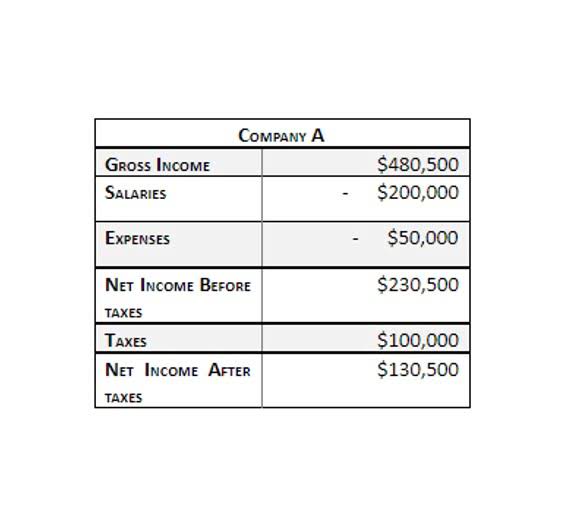Bookkeeping for Nonprofits: A Complete Guide

Finally, board members are personally liable for their custody of the nonprofit organization’s assets. Outsourcing also offers many benefits that you can’t get with an in-house bookkeeper. Never use your own personal bank account for funds that belong in the nonprofit organization.
Recording business transactions
With our nonprofit bookkeeping and accounting services, we’ll ensure your books are always audit-ready. Plus, give you timely financial reports and expert advice that help you carry out your mission. While section 501 exempts nonprofits from paying most income taxes, they aren’t totally free from paying everything – there are certain taxes on unrelated income and https://www.bookstime.com/articles/what-is-a-virtual-accountant potential excise taxes as well. Hopefully, this transparency only shows your organization’s stability and transparency to your community. While for-profit organizations have shareholders to appease, nonprofits have donors to thank and cultivate. QuickBooks for nonprofit bookkeeping is a great way to organize your expenses, donations, and financial information.

Fiscal Year Explained: How To Choose One For Your Business
- Unearned revenue may be a liability on the books but it does have many benefits for small business owners.
- Not only is a financial audit NOT a bad thing, it can actually be a very good thing.
- Instead, you’ll have to invest some time (and perhaps, money) in marketing your business.
- Nothing is static as a nonprofit and we are there to adjust and integrate processes as things change and grow.
- Engaging an independent certified public accountant (CPA) to conduct an external audit is crucial for nonprofits.
- You should check in with your budget monthly, comparing and evaluating your budgeted revenue and expenses against your actual revenue and expenses.
- This guide, designed for busy non-profit leaders, offers practical tips and insights to streamline bookkeeping practices.
These in-kind donations are unique to nonprofit organizations and will contribute to special financial statements like your statement of activities. Using these statements, you can then begin to budget your activities accordingly. Your nonprofit’s statement of activities is also known as your income statement. Plus, you can use this document to review your nonprofit bookkeeping change in net assets from the beginning of the year to the end of the year. The nonprofit’s board of directors is critical in overseeing financial management and accountability. Board members should possess financial literacy, understand the organization’s financial statements, and actively participate in financial discussions and decision-making.
- She talks about business financial health, innovative accounting, and all things finances.
- Typical categories include program services, management and general, fundraising, and other sources of income.
- In addition, checking in on the budget one or more times each month will allow you to adapt to change.
- Nonprofit bookkeeping refers to the recording, tracking, and analyzing of an organization’s revenue and expenses.
- In addition to tracking income and expenses, it also ensures that the organization is using its resources efficiently.
Differences Between Nonprofit Bookkeeping & Traditional Bookkeeping
It’s possible to offer bookkeeping services to clients in person or remotely, which may be ideal if you would prefer a work-at-home job. It’s great when organizations set up their bookkeeping systems correctly from the start. Some start as fiscally sponsored projects but eventually need to track things themselves. There are major differences between the three types of bookkeepers and what each can offer your Nonprofit. Figure out which works best for your organization and start tackling the problems with your books. If basic bookkeeping is all that your organization needs, you’ll need to decide whether to do the bookkeeping in-house or if you should outsource.

Outside of IRS requirements, payroll can be the most important role for a nonprofit bookkeeper. Churches can choose from many affordable online options, including QuickBooks, Aplos, AccuFund, and more. If you’re using Donorbox for church fundraising, managing your finances would be a breeze with Donorbox’s powerful integration with QuickBooks.
Spotting Nonprofit Accounting Tricks – Barron’s
Spotting Nonprofit Accounting Tricks.
Posted: Sat, 18 Jun 2016 07:00:00 GMT [source]
The Crucial Role of Bookkeeping in Nonprofits
It allows you to track your invoicing, billing, expenses, donations, and create detailed financial statements. They are responsible for implementing an accurate bookkeeping system that will reflect the financial transparency of the organization. A nonprofit’s revenue usually includes program fees, membership dues, donations, sales income, proceeds from fundraising events, and investment income. Expenses incurred typically include travel, postage, salaries, rent, fundraising expenses, and financial services.
Step 7: Monitor In-Kind Donations

However, it’s important to consider that nonprofits require a much more robust system of bookkeeping and accounting than for-profit businesses. Caryl Ramsey has years of experience assisting in different aspects of bookkeeping, taxes, and customer service. She uses a variety of accounting software for setting up client information, reconciling accounts, coding expenses, running financial reports, and preparing tax returns.
Bookkeeping does require training and experience but not a specialized degree. Invoices should include a header with your logo and contact information, client contact information, invoice number and date, itemized breakdown of services, and terms and conditions. Once your vendor signs it, it’s a binding contract that tells you exactly how much you ordered from your supplier, how much you paid, and when the supplier agreed to deliver your order. They need an organized system that makes sure purchases are ordered, budgeted for, and fulfilled properly from the get go. As your nonprofit grows, you must protect yourself and the organization from fraud.


